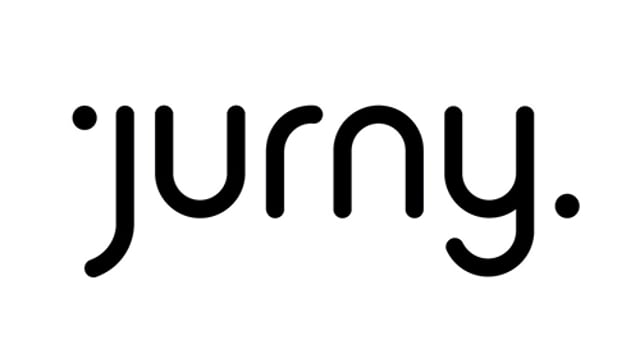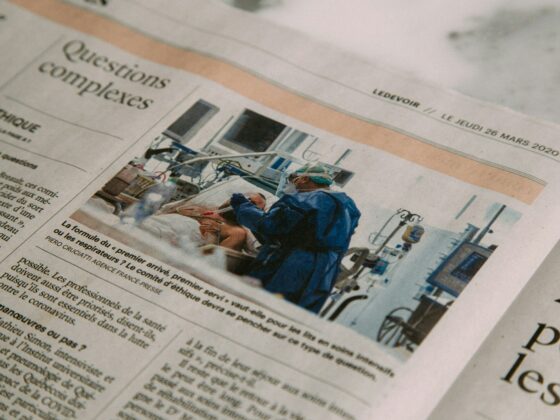Hector: Here at Ashford, I wear a couple of different hats. They brought me in 2020, right in the middle of the pandemic. So May of 2020, I joined hospitality. So I previously spent the first, I think it was like 17 years of my career in oil and gas. And I remember when our chairman was trying to convince me to come over here, you know, I think they’re at the end. He said, look, he said, this is why you should come. I said, well, why? He said, well, so we’re in the middle of a pandemic. Hotels are single-digit occupancy if they’re open at all. Look at it this way. He said, oil and gas is the only industry that is doing worse than we are right now. Oil and gas had just, you know, the pricing had just gotten to the negatives. I was like, well, I said, you have a good point, right? I do at least move up one level. What a pitch. The layoffs and everything, you know, every other year it got, I want to say it got older when I was in and I was doing it, but when I saw an opportunity to do something else, I definitely took it. So they brought me on board. And the reason they wanted for me to come on board was because they had never done any third party work. Right, so they had never done any third-party work. Everything they had done before 2020 was for our parent company. So, long story short, they brought me over, you know, one of the things about being an oil and gas people like their jobs and oil and gas, they do. I had the opportunity to interview with some of the folks here at Premier that would eventually report to me. When I saw the passion that they had for this industry, I was like, okay, we don’t have that over there, right? Like these people love their job and love what they do. These interior designers, these architects, they just absolutely love what they do. So I definitely knew that I wanted to be a part of it then. So then fast forward, I would say probably about a year after that, we had our first redevelopment deal where we’re going to convert an old historic building to a hotel. And we’re in a meeting with our chairman and he looks at me and said, OK, you are now head of development. Right. We need somebody to run development. Now that was completely new to me at the time. Right. I’ve definitely been around business. I knew how to run a business. I’d had my executive roles in oil and gas. So I knew. So Premier itself and those are different industry. I’ve never felt lost. But on the, you know, being head of development, that was different for me. But it’s been great. I’ve learned a lot about the industry. I’ve had to learn about real estate quite a bit, cap rates, et cetera. But so far, it’s been fun. So to tell you a little bit overall of the company, right, so there’s three publicly traded companies. Two of them are real estate investment trusts. They own, between both of them, they own all the hotels, right? They own about 117 hotels today. And then in the center you have Ashford Inc. Ashford Inc. is an external advisor and an asset manager to these two weeks. What connects these three publicly traded companies is our chairman. So he is the founder of those three companies. So that’s what connects the three companies. And Ashford Inc. throughout the year has acquired all of these different businesses. Premier being one of those businesses. They also own Remington Hospitality. They manage, I think, 130, 140 hotels, you know, and about half of them are Ashford and then the other half are actually third party. And they own a water sports company. They own all these different companies. So that’s kind of the overview and how Premier fits within that.
Josiah: So even though I’ve spent my whole career working in hospitality, I have no exposure to the world of development or redevelopment in a lot of the areas where your business works. And from what you shared, what we were talking about before we started recording, it’s a whole span of projects. So I imagine there is so much diversity between projects, but at a very high level, What are the kind of core stages that you go through when you’re thinking about a development or redevelopment? Because you have so many different teams. I’m curious how you think about the sequencing of, I don’t think there’s a typical project, but a project like this, because I have no exposure to this world and I’m dying to learn.
Hector: Yeah, so I think, you know, on the redevelopment, I would say, and development, those are two different projects, right? On a ground up development, I would say it’s much simpler. You’re starting kind of from scratch, right? You’re starting just with a piece of land. And, you know, we, of course, we do a lot of studies. We’re a company that’s very, to say that we are analytical is probably a very, very big understatement. We analyze everything. We analyze markets. We do analysis on top of analysis on top of analysis. We just analyze a lot. We’re very, very thorough because we’re part of Ashford. Ashford has a lot of analysts as well on staff and a lot of experience there, right? And you have different people that wear a couple of different hats right there as well. So the same way that I work two hats, you know, my partner that I work with a lot on the development side on the Ashford side is Richard Stockton, who is the CEO of Braemar Hotels & Resorts. He’s also head of acquisitions for Ashford. So anytime there’s a development deal, we work that together and then we have a team of folks that work with us on these deals. So on a ground of development, it’s really just a lot of market study, looking at incoming supply, trying to figure out if there’s any public incentives. A lot of times these deals these days, especially with the interest rates where they are, these deals rarely ever pencil out if there’s not some type of public incentive, right, some type of tax increment finance and some type of TIF or a for sale component, right. The problem with the for sale component, however, is the for sale component can literally make any deal look good, right? Cause you can just say, Hey, I’m going to get more for my product. So it’s very easy to push the numbers. We’re long-term holders on all of our assets, you know, so rarely do we do something and get rid of it very quickly, unless there is an exit that we have to exit. So we think very long-term, right. When we make these investments. Yeah.
Josiah: Well, let me ask you this, Hector, then it sounds like this is a point of difference, right? The long term outlook. What do you do differently than someone who might have a more short term outlook? How does this play out when you think about a development project you’re going to be in for a long time?
Hector: It depends, right? I think a lot of developers, number one, they’re usually just on the GP side, right? Instead of the LP. And a lot of times all the deals that we look at, number one is we’re very conservative in our underwriting. We’ll look at the market and we always try to go, if the cost, like we’re just looking at a deal right now here in downtown Dallas, which would be, it’s going to be a huge redevelopment deal of an office building. It’s a huge office building. It’s almost 2 million square feet. It’s basically a vertical city that we’re looking to take with our partners on that deal and convert it to mostly multifamily, hotel, multifamily branded. We’re going to keep a small office and then some really high-end retail, some really nice restaurants and a deal like that. What we got from our GC, they gave us a range. So we got the range, we went to the high side of the range, and we still added like 10% on top of that, right? Because we just know, right? We know that a lot of times controls, a lot of these folks are trying to win the business. And we know that sometimes they’re aggressive, but even then we went to the high side and it was a big range. And we just added because you just don’t know. And there are certain things that you’re not going to control. So definitely that we’re very, we look at an exit when we underwrite for IRRs, we look at a five-year exit, right? Just because you need to have something and it’s what most people do. But then we also look at a 10-year trying to figure out and just, I don’t know how much you know, but usually the longer you hold it is technically our decreases. right? Because once it’s stabilized, that’s technically your best time to exit. So we just look at other things. We look at how well it cash flows down the line. So we look at other things that we probably pay a lot of attention to other parameters, not just IRR.
Josiah: Interesting. So a lot of analysis early on in these development projects, but you have teams across almost every discipline, right? So after the analysis, what is the next step on a development project? What teams or people are you bringing in?
Hector: You know, a lot of times it’s architecture. As I mentioned, we have everything in-house. It depends what kind of project. We’ll do a master plan. We can do a test fit. If it’s multifamily, we’ve here since diversified our business, going into multifamily as well. We’re doing some self-storage as well, just trying to diversify. because we have historically really been very big hotel owners. Primarily, we just acquired our first multifamily property in San Antonio with a partner there. And right now we’re looking at potentially doing a development deal in College Station for a self-storage as well. So typically we’ll bring in the architects are definitely one of the first folks, right? We have a development team. So Rex Tulio’s He was a president at a development company a few years ago. We’ve hired him. He has a lot of experience in retail. It’s kind of the experience that he has. And he has a team of analysts that help him really look at all of these deals. So they’ll be heavily involved, but typically it’s architecture. Sometimes we’ll bring in interior design. We’ll probably be, and then we also have, and the nice thing about, you know, what we do here at Premier, we have a lot more resources than your typical company does. out of necessity. Right. So we have a budgeting team. Right. These guys came from GCs. We have an entire team that all they do is budgets. Right. So they look at and I’m not talking about high level budgets. I mean, thousand line item budgets. Right. Of every single chair, every single thing that they’re going to go. So that’s obviously a big part of it. And then because our sister company, Remington Hospitality, is a property management company, we’ll typically do our own underwriting on the hotel site. We’ll have them do an independent underwriting for the hotel pro forma. And then we’ll have our asset management team on the Ashford site do another one. And we kind of sit down and compare, so we bounce things off each other. So yeah, so that’s another thing that we do as well.
Josiah: Well, it’s interesting. I’m always curious about how you build unique advantage as a company, right? So in your business, you’re wearing these different hats kind of within the broader Ashford ecosystem and the way that you’ve described planning for deals, analyzing deals. There’s these different teams that bring different perspectives, which I imagine gives you a unique opportunity to see things that maybe others may miss. I’m also curious, though, how you structure your company Premier and why you have so many different teams. Before we started recording, you were telling me a little bit about how this enables you to step into projects that maybe are going sideways for one reason or another, and you have capabilities then you can add in. Is that right? Where you can kind of like prevent things from going off the rails that others may, right?
Hector: Yes, absolutely. So I’ll tell you a little bit about the structure first, and then I can, the second part of the question. So at Premier, we have an architecture team, right? So we have Patrick Burke. Patrick Burke is a senior vice president of architecture. So I have an executive vice president of operations, right? So he runs, so under him, he has senior vice presidents for project management, for architecture, for interior design, for procurement. We also have an engineering team, which I didn’t mention earlier. And then we have an entire contracts team that reports into my executive vice president of operations. And then on the side, we also have our chief commercial officer. He has a team all business development, but I’ll put that one aside. So yeah, so in many projects, right, things don’t go smoothly, right? Usually you’re dealing with people, things happen, miscommunication, things that are incorrect or not clear on drawings, et cetera, et cetera, et cetera. So we’ve had a handful of situations, one here very recently, one that we’re working through, where things happen, right? We had a situation a couple of years ago where a general contractor on a huge project, we were working on a $150 million project. just decided that he was no longer going to pay his subcontractors. And that obviously poses a challenge for us because then they started, all these subs started leaning the property. We definitely pay. So we’re like, well, we’re paying you. Why isn’t that money making it is? And lo and behold, there we use it on a different project, that money for different project. The nice thing, however, about Premier is in that case, and the other two cases here more recently, in all cases, our project management team We have, I believe we have about 33 or 34 project managers, and we have different teams within the project management team that have different backgrounds, right? So we have some project managers within our team that came from general contracting companies that either own their own GC, you know, general contracting companies. They just decided that it was too much of a headache. They want to be a part of a bigger company. And we also have others that have been superintendents on job sites working 14 days on and a day off. They’re kind of used to that right and they understand construction extremely well. So in all of those cases. We have been able to step in and either supplement the GC heavily or completely replace the general contractor, which has been great because when you look at the cost of going and stopping a job that big and trying to hire another general contractor, and then that other general contractor assuming all of the liabilities of what this other GC did, you’re going to pay probably 50% more if you’re lucky. because they’re having to assume somebody else’s work and they can’t say that it’s good or bad. So that’s been awesome. We also have another team that it’s a project management team that is really our development team. So these folks, any redevelopment deal, like adaptive reuse or roundup development goes through that team. That team is made of all architects. So, you know, I call it, so I’m an engineer. I always say that I’m a recovering engineer. So all these folks in this team, they’re recovering architects, right? They’re architects, licensed architects that obviously understand that world as well. And a lot of times, you know, we’ve come in later on projects. There’s been architecture firms that have already been in place and our team will literally review their work. So we’re able to do a lot of things that others would not.
Josiah: Let me ask you this, you know, there’s a lot in the hospitality daily community, people that want to build projects, create something. I’m curious for your perspective, what are some questions you would advise they ask as they’re looking for a development or redevelopment partner? Because I’m curious, kind of, as you’ve looked across all these projects, what would you advise those folks that are kind of looking for a partner on this kind of stuff?
Hector: I would say, so you’re talking about developers?
Josiah: No, I guess like owners or people investing, people want to create something and they’re saying we need to work with a development or redevelopment company. We don’t know which one. What questions should they ask prospective development partners to kind of get a sense of are these people legit? Can they do the job? That kind of thing.
Hector: Yeah, I would say the biggest thing is you look at the experience right look at the experience of the company the experience of the individuals that are actually going to be working on the project. There’s a lot of companies out there that we’ve worked with I’m going to use general contractors because that’s some of the folks we use the most. where you literally take the same company and they can perform very well if this person is part of the team. And like a completely different company if this other person is in charge of running that job. So we’ve had very good experiences with certain GCs in this place, in this location with such person and not very good at others. I would say that’s probably one of the biggest things. And then as well as I would look at kind of internally of what are we good at? What are we not? And you have to be very self-aware of, I’m actually not very good at this thing. I like this thing, but I’m not very good at it. And I would probably bring in people that could make up for the things that I’m not great at. It’s probably what I would focus on.
Josiah: It’s good advice. Other thing I wanted to get your perspective on is I feel like at some recent hotel investment conferences, there’s been some talk of we need to invest more in the product, right? You know, there’s a service element of hospitality, but you got to invest in the product, the actual building to allow your teams to provide good service. In the projects that you’ve been involved in, Are there a couple areas you feel have a disproportionate opportunity to, you know, make happier guests to improve the value of the real estate? Because there’s always trade offs, right? So what are the kind of the high impact areas for, let’s say, for redevelopment, or renovations that that you like to focus on?
Hector: That’s a good question. I can probably answer it as I think through the redevelopment side. I can probably answer it for the ground up. One thing that we haven’t seen where you actually don’t get value for, and I’m answering it this way and I’ll come back to it, is bigger, larger rooms. Ultimately, you don’t get another dollar out of Revpart just because instead of 400 square feet, you’re building out 415, 420. You can utilize that money, that 5% that you save, and spend it on a really cool rooftop bar. There’s one project that we’re working on right now, a really cool rooftop bar. I think just guests in general these days are looking for experiences. Right? So spend more money there, spend more money in creating kind of really cool, memorable. I know, I know people use a lot of Instagram kind of picturey type stuff. You spending an extra 5% on the size of the guest room. Number one, people are not really going to notice it. And number two, let’s be honest, like how much time do people actually spend in guest rooms?
Josiah: I think there is a point of diminishing returns though, because I think, and this is probably where your team of analysts become helpful, because I was staying at a couple of hotels in New York and they were all pretty small, but one of them was so small, I couldn’t even leave a bag and get around my bed. And then I’m like, I’m never going back to that hotel, right? Are you sure you weren’t in Europe? Right. But I think it’s a good point because there’s obviously like such a range.
Hector: And I think on average, there could be a bit… Ultimately, all of these brands have a minimum requirement. Right. There’s no way I would exceed that minimum requirement. I wouldn’t exceed that. If their minimum is $350, honestly, I’m going to try to negotiate for $325 because I think $25 is not going to make a difference. but I sure as heck I’m not designing 380 because I’m not going to get from 350 to 380. It’s another 30 square feet. I’m not seeing any value there. But no, to your point, absolutely. I’m not by any means suggesting that you have a 180 square foot because that is very uncomfortable. You have to have a nice little sitting area. It just depends the type of hotels. There’s a hotel that one of the REITs that we’re part of owns. It’s a beautiful property, probably nicest hotel I’ve ever been to in my life. It’s the Ritz in Dorado Beach, the Ritz Reserve in Dorado Beach, right? And the standard king there is a thousand square feet. With that said, people are also, I think, nightly rates are like 2,500 bucks. So, I mean, there’s a point where, yeah, you’re going to want to, but I think for most of the product out there, that’s not the case. So,
Josiah: Yeah, it’s a really good perspective. And you have a unique, you know, vantage point to look across a lot of different projects. One thing I asked you about kind of before we started recording was, you know, what’s on your mind these days, you mentioned interest rates, you know, people might be listening to this episode years down the line. So I like to kind of make it practical beyond this very instant, you know, of where we’re at with the economy. My question for you would be, I guess, even in this interest rate economy that we’re in today, What’s still possible in this environment? Are there actions that our listeners can take now, even with interest rates as they are? What are you advising people to do or think about at this moment?
Hector: Yeah, I think a couple of things. I think number one, I think I mentioned, I can’t remember who I was recording, but try to go to the government to try to get TIF, tax increment financing. And I know that public incentives sometimes get a bad rap from the public, because they don’t quite understand how it works. They think that it’s a bunch of free money that the government is just kind of giving you. Taxing and refinancing, they’re giving you a portion of something they don’t have today that you’re creating for. Right. So you’re paying zero dollars today and you’re saying, hey, as part of the taxes that I’m going to create in the future for you of X million dollars. Right. That, by the way, you have zero of right now, because right now you have a raw piece of land or a vacant office building. Right. Let me create something good with that’s going to generate jobs is going to generate taxes. And let me take a portion of that to fund because it’s too expensive. And I think that, you know, there’s a lot of cities that are willing to do that because it’s important to them. But I think you need something to be able to make these deals work, because right now it’s hard where interest rates are where they are.
Josiah: Yeah, super good advice. I feel like we covered a lot. Hector, before we go, is there any questions I should have asked you or things on your mind? If not, it’s okay. But I always want to check if there’s anything else that you wanted to make sure that we cover before we go.
Hector: No, I think the only thing for me is, you know, I think you asked me earlier kind of what differentiates us, you know, and I talked a lot about the development side, which kind of go hand in hand with, you know, when we offer our services just as a third party provider. One of the things that I would say is for a lot of organizations out there, they say that they think and act like an owner, but it’s really difficult for you to really put that hat on unless you are an owner. In our case, we are. So our team, for example, they live and die by the budget. A lot of times, some of the folks in the brands probably don’t like it as much because they ultimately have an owner’s hat on. Where a lot of these other companies are just trying to make a name for themselves and they’re trying to get the next award for us is about providing good service and ultimately providing good value, right? So that’s always top of mind for us. And just coming back to what I was saying earlier is we do have a lot of resources that most companies don’t. We have an engineering group as well. that goes in before every renovation to check to make sure that you’re not going to renovate the 14th floor just to find out that the 15th is leaking or has issues. And unfortunately, we’ve had to learn a lot of these lessons the hard way. We also have a lot of relationships with the brands because we ultimately, our current company ultimately owns a lot of hotels. We know what can be negotiated on the PIP. we know what you can push back on, where most owners and urban developers won’t. If they just own a couple of properties, if they own no properties, they don’t know. And, you know, we’ll tell the brands, well, you let us do it over here, over here, over here. So we’re very good with that as well. And we have great relationships with all the brands.
Josiah: I love it. I learned a lot from you today, Hector. Thank you for taking the time.







